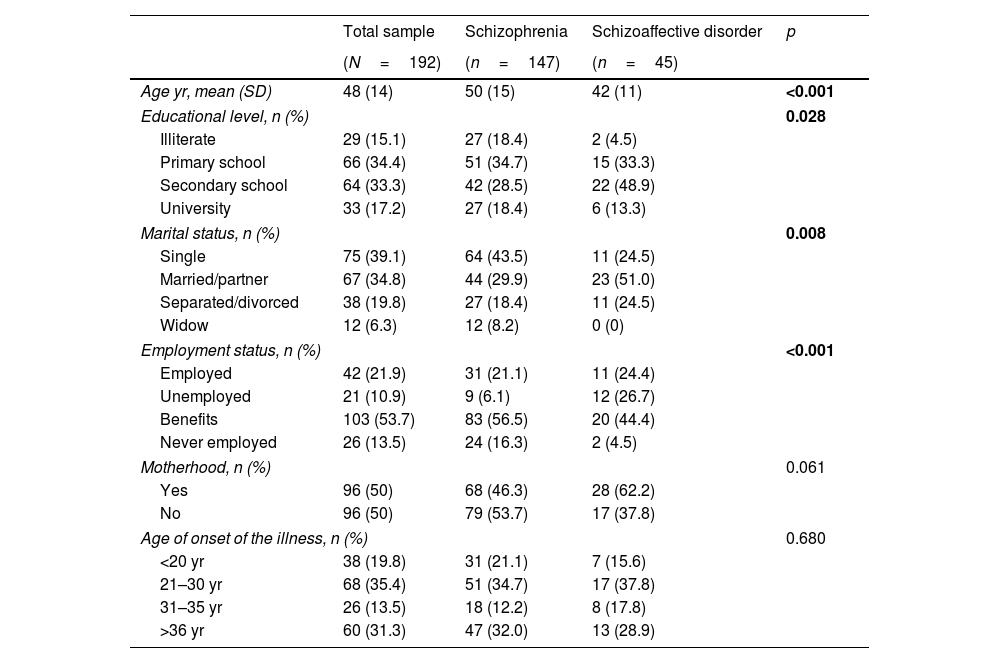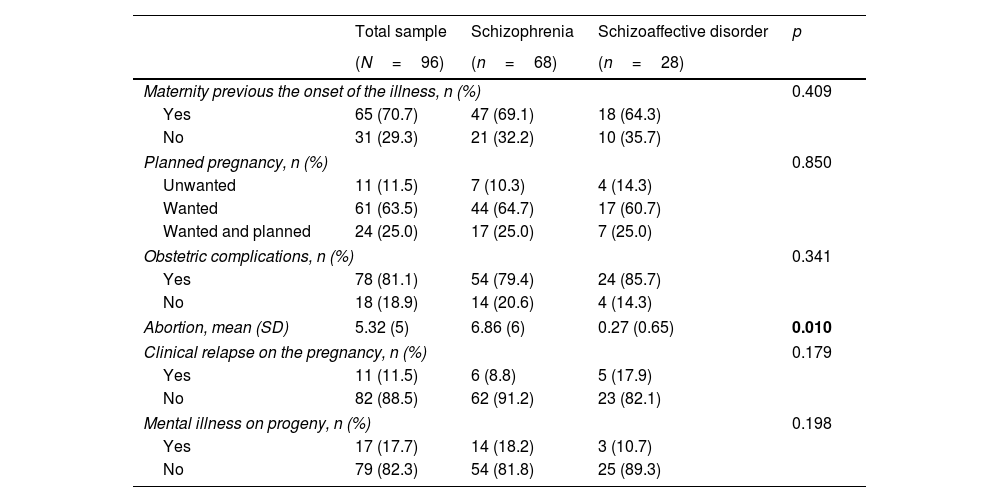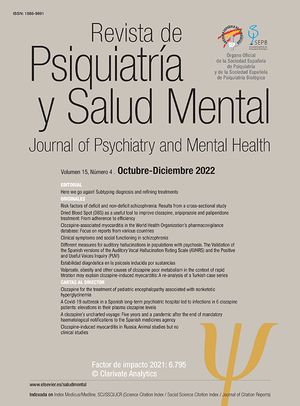Maternity rates in women with schizophrenia have tripled in the past decades, with a current percentage similar to the general population (50–60%). However, mothers with schizophrenia present higher rates of single marital status, and social dysfunction than the general population. In addition, the incidence of unplanned pregnancy, abortions, miscarriages and obstetric complications is higher.
This study aimed to describe variables related to maternity in this population.
MethodsOne-hundred and ninety-two outpatient women diagnosed with schizophrenia and schizoaffective disorders were included (DSM-IV-TR criteria) in a two-site study. Psychosocial risk factors, demographic variables and clinical features were recorded in the same visit. Non-parametric tests were used in order to describe variables for likelihood offspring in psychotic women.
ResultsOne-hundred and forty-seven (76.6%) women suffered from schizophrenia and 45 (23.4%) schizoaffective disorder. Psychotic mothers used to be married/having a partner and presented a later onset of the illness (over 36 years old) compared to non-mothers. In addition, mothers generally presented pregnancy before the onset of illness. Regarding obstetric complications, around the 80% of the sample presented at least one obstetric complication. Although desire or wish of pregnancy was reported in 66.3% of the mothers, rates of planned pregnancy were 25% and only the 47.9% were currently taking care of their children with their husband/partner.
ConclusionMaternity rate is high in this population. This study highlights the need to promote reproductive health care for women with mental disorders and to consider their reproductive life plan.
Later onset of disease and being married are potential predictors of maternity in our sample of women with a schizophrenia and schizoaffective disorders while only the half were caring their children at the moment of the evaluation.










